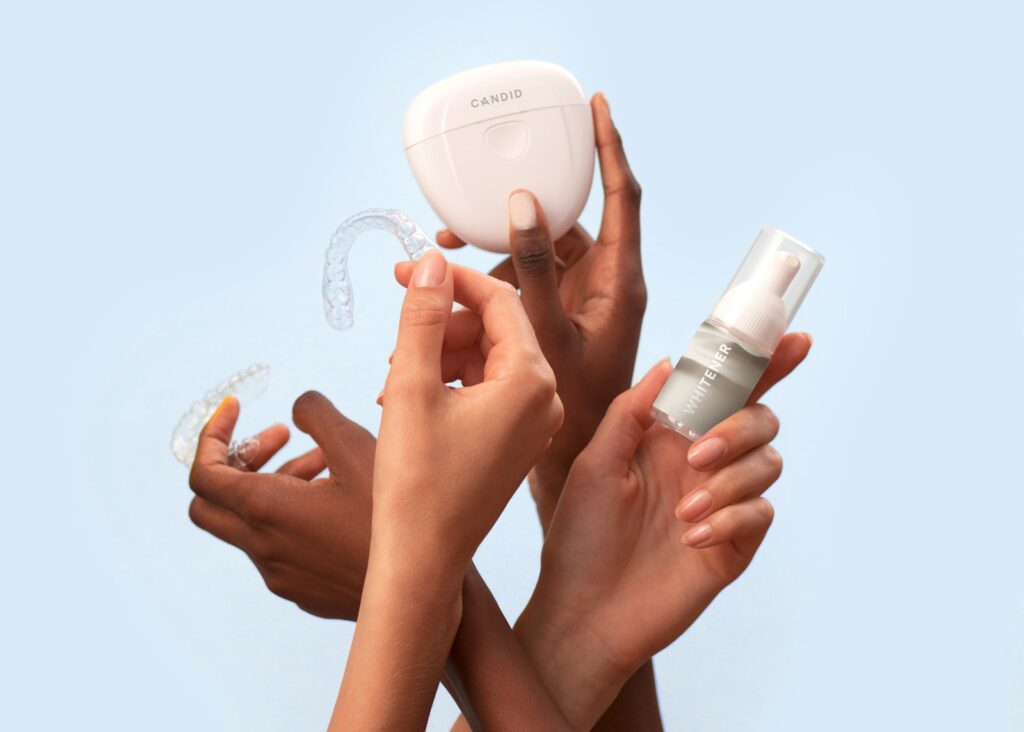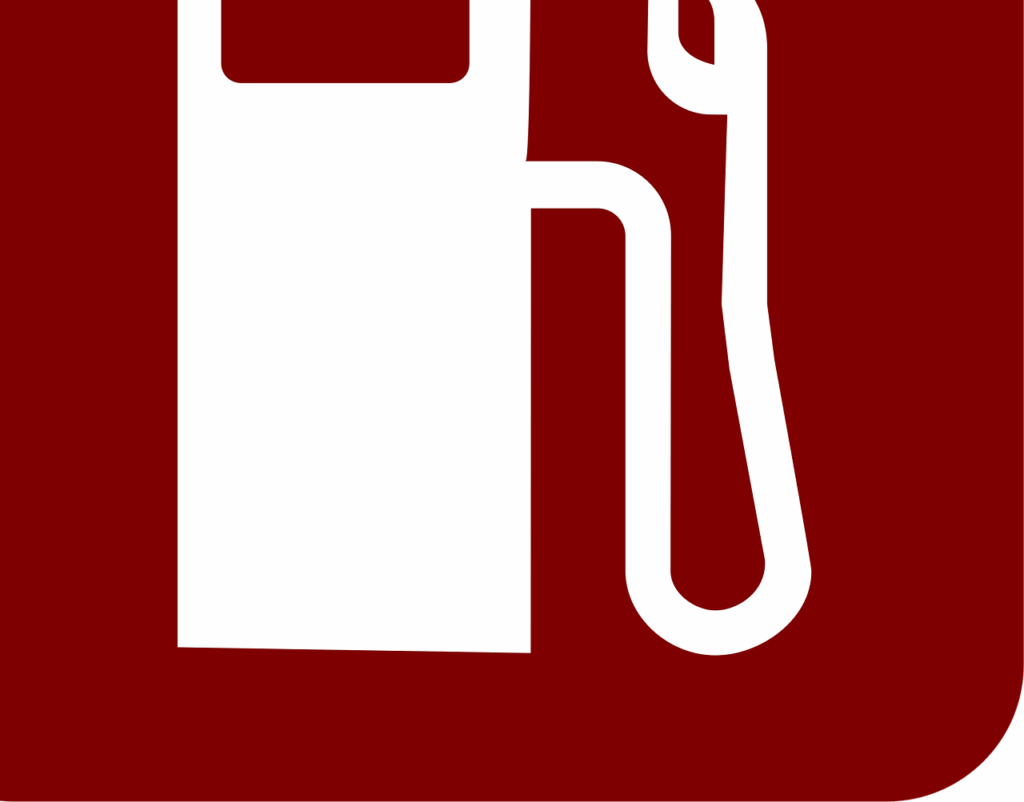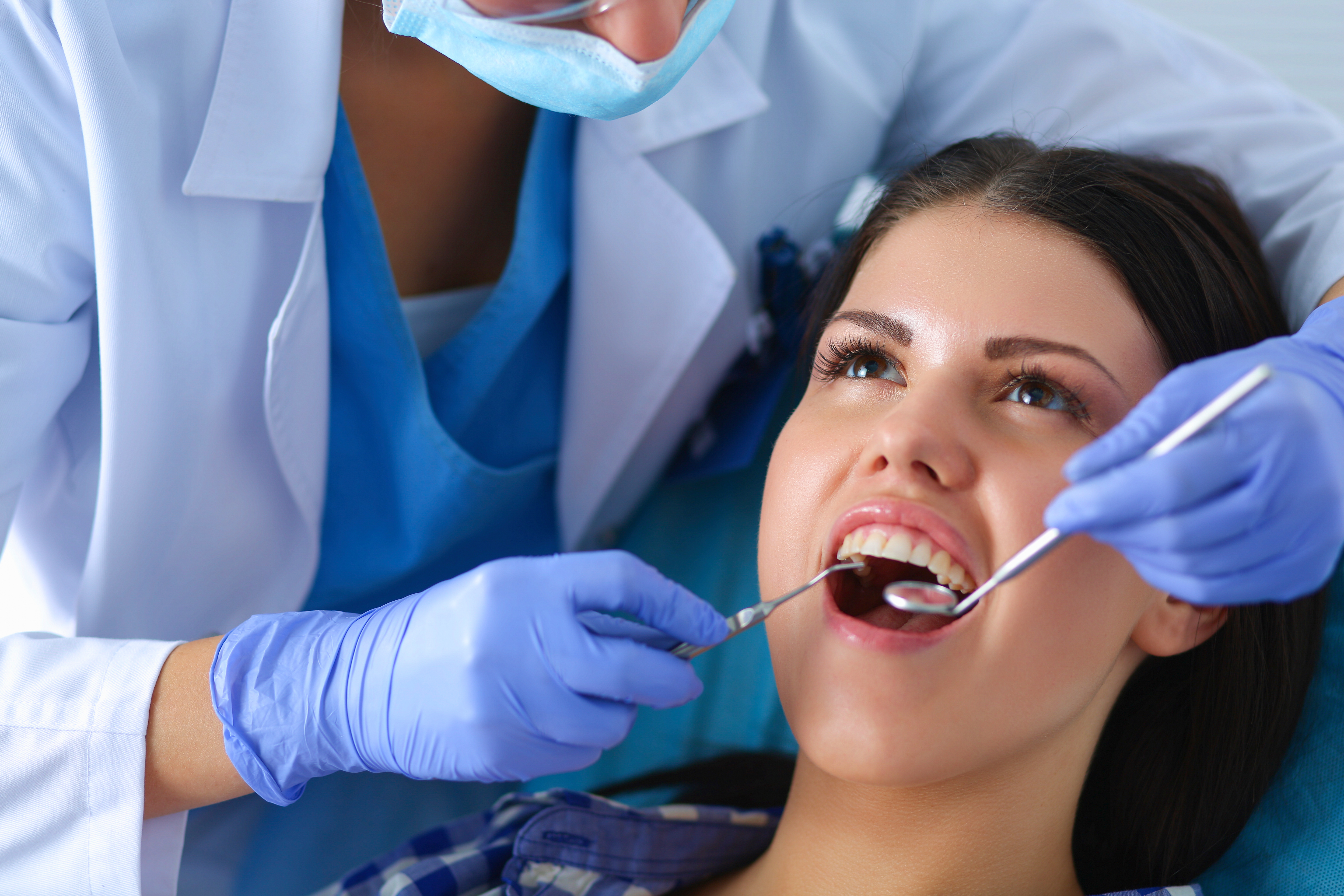
The thought of a dental visit often conjures a mix of emotions—perhaps a dash of anxiety, a sprinkle of good intentions, and maybe a quiet hope that your dentist won’t discover *that* one thing you’ve been doing. We all strive for a healthy smile, and we know the basics: brush, floss, and visit regularly. Yet, in the quiet moments between appointments, many common habits can subtly, or sometimes not so subtly, sabotage our oral health and even make those essential dental visits a little less smooth for everyone involved.
Dentists are truly dedicated professionals, committed to helping you maintain your best possible smile. They’ll greet you with a friendly demeanor, meticulously clean your teeth, and gently remind you about flossing—again. But beyond those polite recommendations, there are indeed a handful of things they genuinely wish their patients would stop doing. These aren’t just minor pet peeves; they are behaviors that can impact your oral health, lead to more extensive treatments, and ultimately, cost you more in both time and money. It’s not about guilt; it’s about prevention and partnership.
So, let’s pull back the curtain and explore some of these frequently encountered “dental no-nos.” By understanding these habits and why they’re problematic, you’ll be empowered to make small, yet significant, changes that can lead to a healthier, brighter smile and much more comfortable, productive dental appointments. We spoke with several experts in the field, including Whitney White, DDS, DMD; Nayson Niaraki, DMD, MS; Catrise Austin, DDS; and Jenna Chimon, DDS, who shared their insights into the habits they’d love to see patients abandon. We also draw upon the collective wisdom from practices like Canyon Gate Dental, all for your benefit.
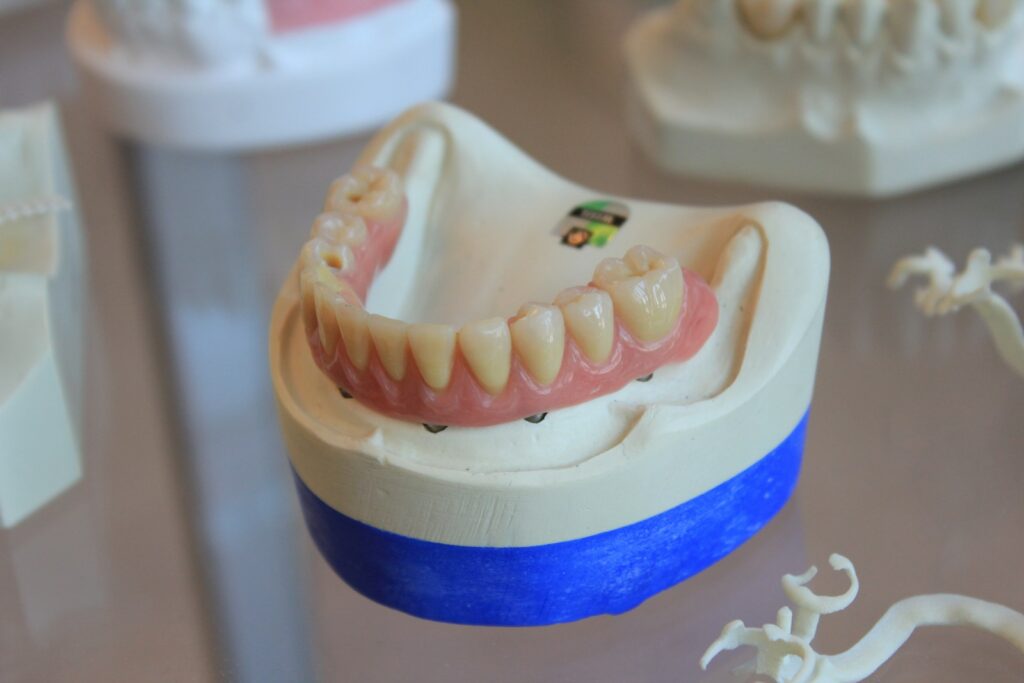
1. **Lying About Your Oral Hygiene Habits**Perhaps one of the most common “fibs” dentists encounter is about daily brushing and flossing routines. “I notice that patients often exaggerate about how frequently they brush and floss,” shares Whitney White, DDS/DMD, a dentist and practice owner at Aspen Dental. It’s an understandable inclination; who wants to admit they’re not quite hitting the mark on something so fundamental?
The standard recommendation is to brush twice a day and floss daily, and patients often feel compelled to affirm they do so, whether it’s entirely true or not. However, as Dr. White points out, “their gums usually tell the real story!” The tell-tale signs of infrequent flossing, such as bleeding gums and tartar buildup, are often undeniable indicators for a dental professional.
This extends beyond just brushing and flossing. For those undergoing orthodontic treatment, such as with aligners, being upfront about wearing your device consistently is equally vital. Nayson Niaraki, DMD, MS, an orthodontist and cofounder of Smilebar, notes, “I frequently encounter patients who don’t share that they haven’t been diligent in wearing their aligners or following directions.” This lack of transparency can significantly impede progress toward your desired outcome.
The dental office aims to be a judgment-free space where patients feel comfortable being honest about their habits. The goal is always to improve oral health, not to make anyone feel bad. Being truthful allows your dentist to provide the most accurate advice and a tailored plan to achieve your best oral health outcomes, ensuring you achieve “the smile you’ve always wanted.”
Read more about: A Dog Trainer’s Candid Confession: Why I Steer Clear of Dogs with These Potentially Harmful Traits
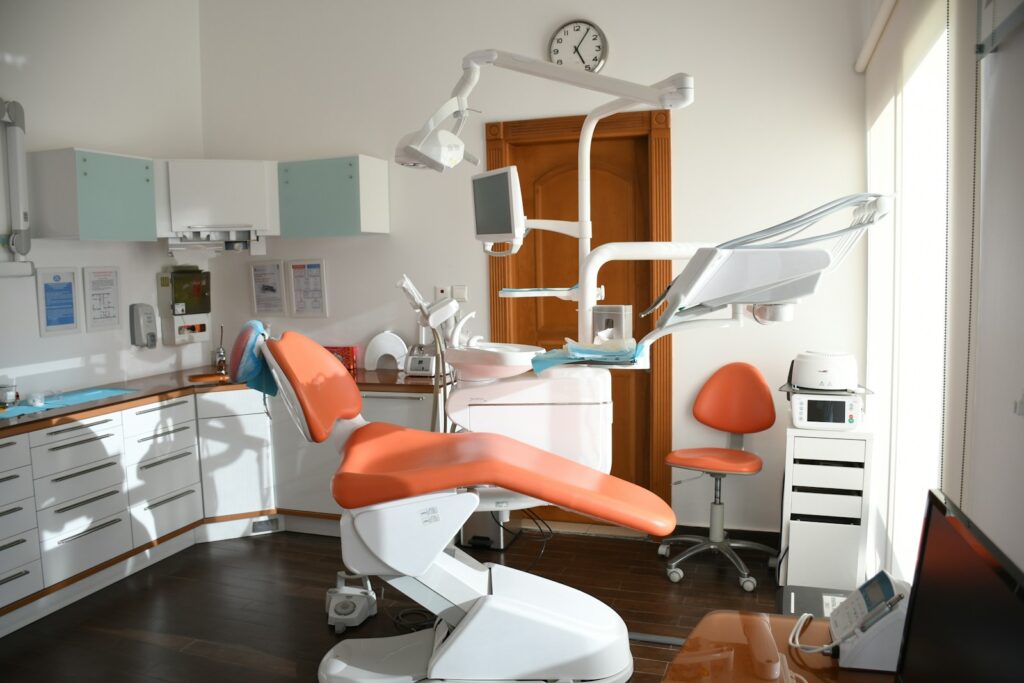
2. **Skipping or Delaying Your Dental Appointments**This is, by far, at the top of many dentists’ silent frustration lists. The conveniences of life sometimes make us overlook the importance of scheduled medical care, and dental appointments are no exception. Whether it’s showing up late, skipping the appointment altogether without notice, or even popping in unannounced, these actions have ripple effects. “By far the number one thing is patients not showing up for their appointments without letting us know,” says Jenna Chimon, DDS, lead cosmetic dentist at Long Island Veneers.
The impact of skipping a visit or arriving late extends beyond just your personal care. “Dental schedules run on precision,” explains Catrise Austin, DDS, celebrity cosmetic dentist. A missed or delayed appointment creates an empty chair that “could have gone to someone else” as Dr. Chimon notes. This not only wastes the practice’s time but also prevents another patient from receiving much-needed care. A simple call or text ahead of time makes “all the difference” and allows the office to adjust schedules accordingly.
Moreover, waiting until a problem becomes painful is a common and detrimental habit. As dentists at Canyon Gate Dental put it, “Waiting until pain hits means the problem is already advanced—and usually more expensive to treat.” Regular check-ups, typically every six months, are crucial for catching issues early. “Just because nothing hurts doesn’t mean something might not be wrong,” emphasizes Dr. Brett Langston, a prosthodontist. Small cavities often go unnoticed until they’ve progressed significantly.
Regular visits are also vital for oral cancer screenings, which can detect “a very, very debilitating disease” early. Dr. Langston stresses that it “often could have been caught during a routine visit.” While it might seem redundant, these routine visits are fundamental preventative care. “It protects your health, saves you money in the long run, and allows your dentist to deliver their very best work,” summarizes Dr. Austin, making timely and consistent appointments a true “win-win.”

3. **Chewing on Hard Objects and Using Your Teeth as Tools**This habit encompasses a wide range of seemingly innocent actions, from mindlessly munching on ice to using your teeth to open packages. Yet, dentists universally agree that these behaviors are highly damaging. “If you’re from the South and you like to go to Chick-fil-A, they have the best little nugget ice. I get it. I put it in my mouth. I want to chew it,” admits Dr. Brett Langston. But he quickly warns, “I cannot tell you the damage that chewing ice does.”
The damage from chewing ice is twofold. First, ice is incredibly hard, exerting immense force on your natural teeth, crowns, or bridge work. This leads to significant “wear and tear.” Second, the cold temperature “freezes the teeth,” making them “more susceptible to fracture.” Dental materials, too, become less pliable and more prone to breaking under such conditions. Dr. Natalie Peterson, a clinical associate professor of dentistry at the University of Minnesota, echoes this, stating, “Ice can break your teeth because not only is it hard, but it’s cold, too,” and it’s “particularly damaging for people with fillings.”
Beyond ice, the temptation to use teeth as tools—to open packages, tear tape, or crack nuts—is another common misstep. “Teeth are strong and very durable, but they are not meant to open bottle tops, tear apart packages or chew on hard objects,” explains Dr. Jarrett Manning, a comprehensive cosmetic and implant dentist. Your front teeth, for instance, are designed for vertical chewing, to “incise and cut through things,” not for horizontal pulling forces.
Engaging in these actions puts “unnecessary stress” on your teeth and can result in “pain, broken or cracked teeth, root canals, or even teeth that need extracting.” Dr. Jennifer Soncini, a clinical associate professor of pediatric dentistry, also highlights nail-biting as a damaging habit that “wears down the enamel on the edges of your teeth.” While minor damage might sometimes be corrected with a small filling, Dr. Langston has witnessed severe cases where patients “broke off a crown, broke off a veneer,” leading to much more extensive and challenging repairs. So, keep scissors or a bottle opener handy, and let your teeth stick to their intended purpose.
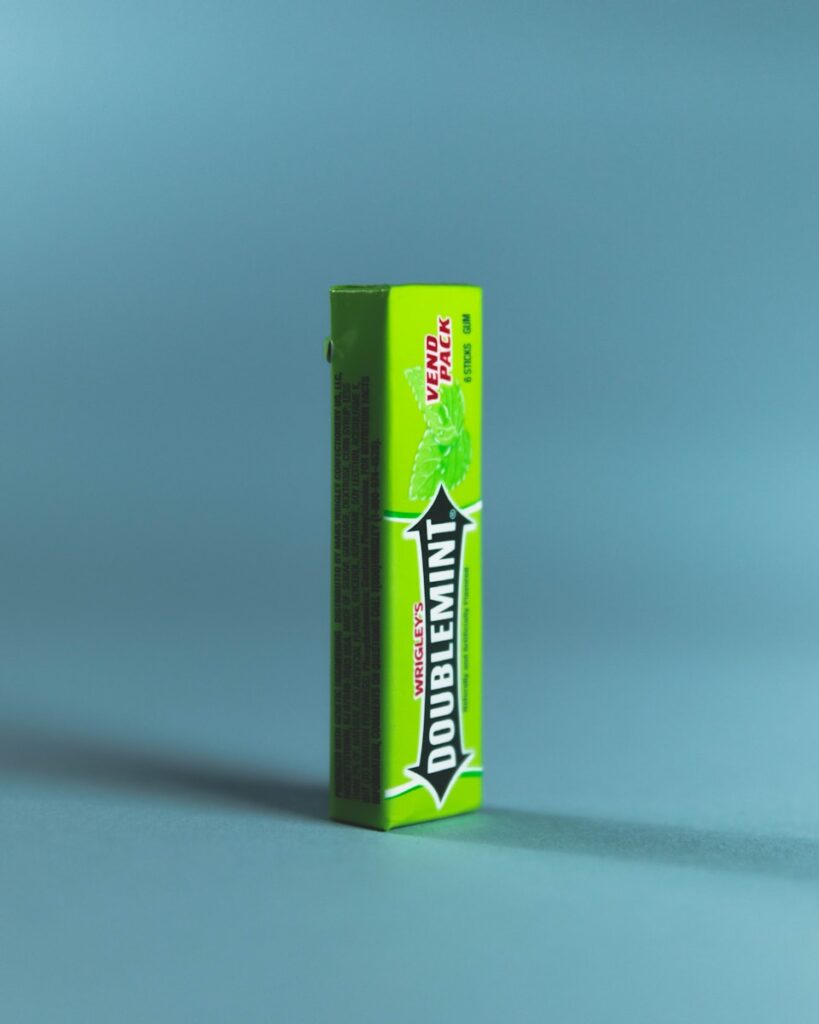
4. **Ignoring Bleeding Gums or Hiding Other Symptoms**One of the clearest red flags for oral health issues is often dismissed by patients: bleeding gums. “If your gums bleed when you brush, it’s not normal,” states Canyon Gate Dental. Many people might brush off this occurrence as an occasional irritation, but it’s a critical symptom that should never be ignored. Bleeding gums are frequently “the first sign of gingivitis or inflammation—and it won’t fix itself.”
Gingivitis, the initial stage of gum disease, is reversible when caught early. However, if left unaddressed, it can progress to more severe periodontal disease, leading to bone loss and potential tooth loss. Your gums are a window to your oral health, and persistent bleeding indicates an underlying problem that requires professional attention. Dentists advise that instead of ignoring it, you should “Schedule a deep cleaning.”
This principle extends to all dental pain or discomfort. Hiding your symptoms from your dentist can have serious repercussions. Whether it’s a dull ache, sensitivity to hot or cold, or any other unusual sensation, these are your body’s signals that something is amiss. Your dentist relies on your honest input to make an accurate diagnosis and develop an effective treatment plan. By sharing your symptoms openly, you enable your dentist to “diagnose and treat problems early before they worsen.” Just as you wouldn’t ignore chest pain, dental pain or bleeding gums are not something to endure in silence. Addressing these issues promptly can prevent them from escalating into more complex, painful, and expensive problems down the line, safeguarding both your smile and your wallet.

5. **Brushing Too Hard or With the Wrong Toothbrush**While the importance of regular brushing is universally accepted, *how* you brush and *what* you brush with are equally crucial, yet often misunderstood. Many patients believe that a harder bristle means a cleaner mouth, a notion that dentists are eager to correct. “Hard bristles don’t equal better cleaning—they strip enamel and irritate gums,” warns Canyon Gate Dental.
Dr. Natalie Peterson, a clinical associate professor of dentistry, strongly advocates for soft-bristled toothbrushes. She explains that “hard- and medium-bristle toothbrushes ‘can be really abrasive to your gums, so they can cause more recession, and it’s hard to fix recession once it’s happened.’” Gum recession can expose the sensitive roots of your teeth, leading to discomfort and an increased risk of cavities at the gumline.
Beyond gum health, abrasive brushing with hard bristles can also be detrimental to your teeth’s general enamel. Enamel is the protective outer layer of your teeth, and once it’s worn away, it cannot be replaced naturally. Damaging enamel makes your teeth more vulnerable to sensitivity, decay, and discoloration. It’s a precious resource that needs gentle care.
Instead of brute force, dentists recommend using a “soft-bristled brush and gentle circular motions.” For those who find it challenging to maintain consistent pressure or technique, electric toothbrushes are often suggested. As Canyon Gate Dental notes, “Electric toothbrushes do the hard work for you (without harming your gums),” applying consistent pressure and often including timers to ensure you brush for the recommended two minutes. This ensures effective cleaning without the risk of damage.
Read more about: 13 Crucial Household Items You Should Be Cleaning Every Single Day for a Healthier Home

6. **Consuming Excessive Sugary or Acidic Foods and Drinks**Our diets play a profound role in our oral health, and dentists frequently see the detrimental effects of overindulging in sugary and acidic items. While occasional treats are fine, excessive consumption of certain foods and drinks creates a hostile environment for your teeth, fostering bacteria and erosion. “Sticky candies like gummy worms, gummy bears and peach rings are all items that dentists steer clear of,” says Dr. Jennifer Soncini, a clinical associate professor of pediatric dentistry.
The primary concern with sticky candies is their tendency to “get stuck in the grooves of your teeth and between your teeth,” providing a prolonged feast for cavity-causing bacteria. These sugary residues can linger, increasing the risk of decay and even dislodging fillings. Dr. Natalie Peterson adds that sour gummies are a “trifecta of bad” because “they’re sticky, they’re super sugary and they’re really acidic,” making them particularly harmful to enamel.
Beyond candy, many everyday beverages contribute to this problem. Coffee, for instance, not only stains teeth but is “highly acidic, wearing down enamel over time.” Similarly, adding lemon to your water, while seemingly healthy and refreshing, can be highly damaging. Dentists warn that “lemon water is highly acidic and erodes enamel, leading to cavities and tooth sensitivity.” This constant exposure to acid softens enamel, making it more susceptible to wear and tear.
Dr. Jarrett Manning also highlights excessive alcohol consumption as problematic. “Alcohol leads to dry mouth and decrease saliva production,” he notes. Since saliva is crucial for cleansing the mouth, neutralizing acids, and protecting teeth, a reduction in its flow can significantly “increase your risk of getting cavities.” The solution? Opt for healthier snacks like nuts and vegetables, and if you do indulge, try to brush your teeth shortly after to minimize the impact of sugars and acids.
Read more about: Your Daily Sip: 14 Expert-Backed Drinks to Naturally Lower Blood Sugar and Boost Your Metabolic Health
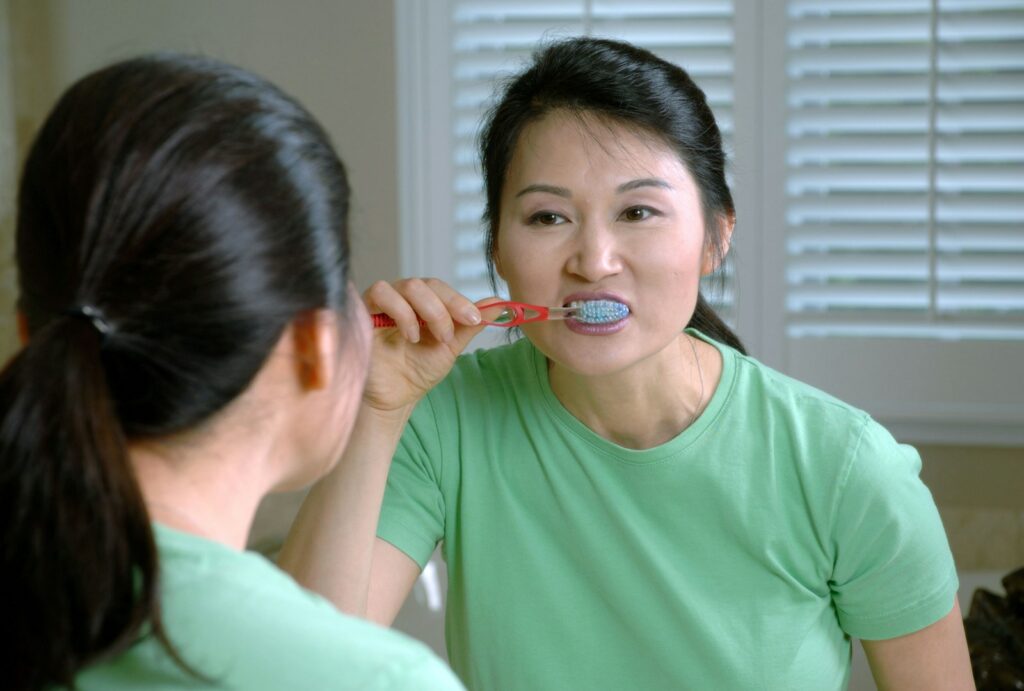
7. **Skipping Brushing Before Bed**While daily brushing is essential, the nighttime routine holds particular significance in the eyes of dentists. It’s the one time they emphasize you should “never ever, ever, ever go to sleep without brushing your teeth,” as Dr. Jennifer Soncini, a clinical associate professor of pediatric dentistry, strongly advises. Many might think that missing a single brush won’t make a huge difference, but the overnight period is prime time for oral bacteria to wreak havoc.
Throughout the day, food particles, sugars, and acids accumulate in your mouth, forming a sticky film called plaque. When you go to bed, your saliva production naturally decreases, reducing the mouth’s ability to wash away these harmful substances and neutralize acids. This creates an ideal environment for bacteria to multiply and feast on the remnants in your mouth.
Skipping your nighttime brush means leaving a day’s worth of plaque and food debris to ferment and attack your tooth enamel for several uninterrupted hours. This prolonged exposure significantly increases your risk of developing cavities and gum disease. The bacteria, unchecked, can cause significant damage that would be mitigated by a thorough brushing before sleep.
Going to bed with a clean mouth effectively “keeps bacteria from growing overnight,” says Dr. Soncini. It’s a simple, yet profoundly impactful, habit that serves as a crucial defensive measure against oral health problems. Prioritizing that final brush of the day ensures your mouth remains as clean and protected as possible during the longest period it goes without food or drink.
Beyond the daily routines and immediate habits, our dentists also pinpointed several lifestyle choices and treatment-related behaviors that, over time, can significantly impact your long-term oral health. These are often things we might not even connect directly to our teeth, but they play a crucial role in maintaining that healthy, bright smile we all desire. It’s about understanding the bigger picture of how our choices echo throughout our oral landscape.
Read more about: The Billionaire Blueprint: 14 Shocking Daily Routines of Tech Titans and Top CEOs That Fuel Their Success

8. **Consuming Excessive Alcohol**We often focus on sugary drinks, but excessive alcohol consumption is another habit dentists wish we’d reconsider for the sake of our oral health. While a casual drink might seem harmless, a regular pattern of overindulgence can silently chip away at your dental well-being in ways you might not expect. It’s not just about the sugar content; there are deeper, more systemic effects at play.
Dr. Jarrett Manning, a comprehensive cosmetic and implant dentist, underscores this concern, stating that “Alcohol leads to dry mouth and decrease saliva production.” This isn’t just a minor discomfort; it’s a significant problem for your mouth. Saliva, often overlooked, is a natural defense mechanism.
It plays a vital role in cleansing the mouth, washing away food particles and bacteria. More importantly, saliva helps to neutralize acids that are produced by bacteria and from the foods we eat and drink, which can erode enamel. When saliva production decreases due to alcohol, this protective buffer is weakened.
As Dr. Manning explains, a reduction in saliva flow can significantly “increase your risk of getting cavities.” With fewer natural defenses, your teeth become more vulnerable to acid attacks and decay. Thinking about alcohol’s impact on your liver is common, but remembering its effect on your saliva and cavity risk is equally crucial for a healthy smile.
Read more about: The Midnight Menu No-Gos: 12 Late-Night Snacks That Just Aren’t Worth the Calories or the Regret

9. **Smoking or Vaping**Perhaps one of the most universally discouraged habits by healthcare professionals, smoking and vaping also rank high on dentists’ lists of things they wish patients would stop doing. The damage extends far beyond just yellowed teeth, delving into serious health risks that compromise not only your oral health but your entire body. It’s a habit with profound and devastating consequences.
Dr. Jarrett Manning does not mince words on this, stating unequivocally, “I would never smoke or use tobacco.” He explains that beyond staining teeth, smoking “can cause severe oral health issues, tooth discoloration and in extreme cases, oral cancer.” This emphasizes the gravity of the habit and its direct link to life-threatening diseases that manifest in the mouth.
It’s important to remember that “Vaping isn’t a safer option—it’s just differently harmful,” as dental professionals at Canyon Gate Dental note. While some might consider vaping a less damaging alternative, it still introduces harmful substances into your mouth and body, leading to similar risks for gum tissue damage, tooth discoloration, and an increased likelihood of oral cancers.
If you are currently smoking or vaping and considering quitting, your dental team wants to support you. Canyon Gate Dental advises, “If you’re working to quit, let us know. We can recommend products that protect your teeth during the process.” This collaborative approach shows that dentists are partners in your overall health, not just your dental health.
Read more about: Unlock Longevity: Essential Lifestyle Shifts to Combat Chronic Inflammation and Transform Your Well-being
10. **Believing TikTok Dental Trends Are Legit**In today’s digital age, viral trends spread rapidly, and unfortunately, dental care is not immune to misinformation. Dentists express significant concern about patients who turn to social media platforms like TikTok for dental advice, often experimenting with unproven and potentially harmful DIY treatments. These trends might promise quick fixes but can lead to irreversible damage.
Canyon Gate Dental warns that “From lemon juice whitening to DIY braces, these hacks are viral for the wrong reasons.” While these trends might gain traction online, they frequently lack any scientific backing and can be incredibly abrasive or acidic, causing serious harm to your teeth and gums. What appears to be an easy solution can quickly become a complex problem.
The dangers are real and substantial. As Canyon Gate Dental highlights, “Many cause permanent damage, and fixing it is way more expensive than just doing it right.” These DIY remedies can strip away precious enamel, irritate gums, or even misalign teeth further, leading to costly and painful professional interventions down the line. It’s a high-stakes gamble with your smile.
Instead of falling for viral fads like charcoal powder or oil pulling, which can be abrasive or ineffective, dentists universally advise caution. The wisdom from Canyon Gate Dental is clear: “Always consult a licensed professional before trying anything that involves your teeth.” Your dentist can recommend safe, professional options for whitening or other cosmetic concerns, ensuring your dental health is protected.
Read more about: The Unwritten Rules of the Sky: Why Pilots Are Our Heroes When Passenger Pandemonium Strikes
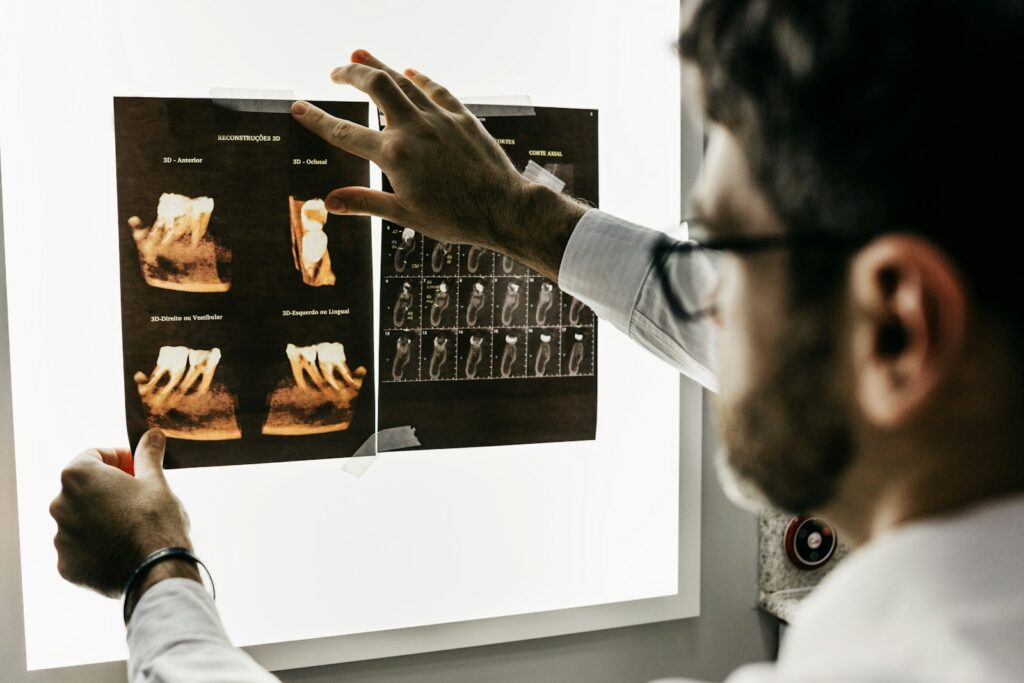
11. **Skipping Your Dental X-rays**When you visit the dentist, X-rays might seem like just another routine procedure, but they are a crucial diagnostic tool that dentists rely on to get a complete picture of your oral health. While they might feel like an inconvenience, skipping them means missing out on vital information that could prevent significant problems from developing. It’s a glimpse into the unseen.
Canyon Gate Dental emphasizes that “X-rays help us see what’s below the surface—including infections, bone loss, and cavities between teeth.” Your dentist can only see so much with the eye. X-rays reveal issues lurking beneath the gums, inside the teeth, and within the jawbone that would otherwise go undetected until they become painful and more severe.
These radiographic images provide crucial insights into areas that your dentist simply cannot see during a visual examination. They are “safe and necessary for accurate diagnosis and treatment,” according to dental professionals. Catching these hidden problems early, such as small cavities developing between teeth or early signs of bone loss from gum disease, is paramount.
By choosing to skip X-rays, you’re potentially delaying the diagnosis of serious conditions, allowing them to progress unchecked. Canyon Gate Dental’s advice is straightforward: “Don’t skip them. We’ll only recommend them when truly necessary—and they could save you from major treatment later.” Investing in this simple diagnostic step is an investment in your long-term oral health and peace of mind.
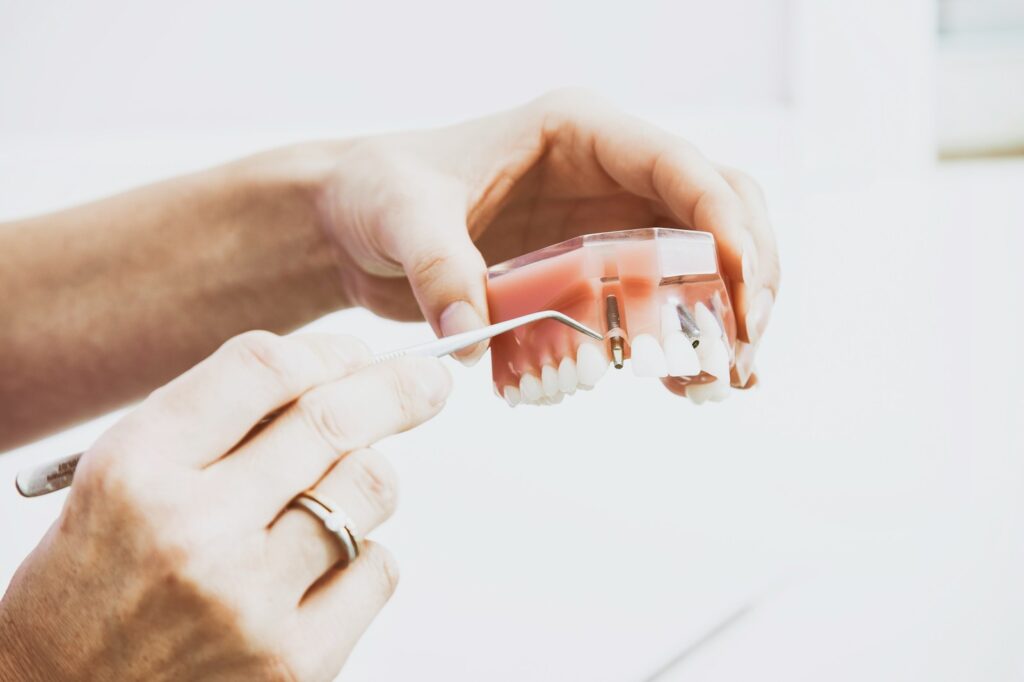
12. **Grinding at Night and Not Getting a Night Guard**Do you often wake up with a sore jaw or unexplained headaches? You might be part of the large number of people who grind their teeth at night, a condition known as bruxism. This unconscious habit can inflict significant damage on your teeth over time, often without you even realizing it until your dentist points it out. It’s a silent, grinding menace.
The constant clenching and grinding during sleep exert immense pressure on your teeth, wearing them down gradually. As Canyon Gate Dental aptly describes, “Grinding wears down your teeth like sandpaper.” This abrasive action can lead to flattened chewing surfaces, chipped teeth, and even fractures, compromising their structural integrity and leading to increased sensitivity.
Beyond the visible wear, bruxism can also cause jaw pain, headaches, and even temporomandibular joint (TMJ) discomfort. While you might not be aware of the grinding activity itself, your dentist can often see the tell-tale signs of this nocturnal habit during your regular check-ups, even if you don’t feel any immediate pain.
The good news is that there’s an effective solution. Canyon Gate Dental advises, “Ask us about custom night guards that protect your bite and jaw while you sleep.” A custom-fitted night guard creates a protective barrier between your upper and lower teeth, absorbing the force of grinding and preventing further wear and tear, safeguarding your teeth and alleviating associated pain.
Read more about: 14 Ingenious Ways Traffic Cameras Empower Your Drive: Real-Time Insights for Optimal Speed and Location
Ultimately, your dentist is your partner in maintaining not just a beautiful smile, but your overall health. The advice shared by these experts isn’t meant to be a lecture, but rather a guide to empower you. By understanding these often-overlooked habits and making small, conscious adjustments, you can significantly enhance your oral hygiene, prevent costly and painful problems, and ensure your dental visits are as comfortable and productive as possible. A healthy mouth truly contributes to a healthier, happier you, so let’s all make these positive changes and show our smiles the care they deserve. This partnership approach ensures you receive the best care, leading to a radiant smile and robust well-being for years to come.

